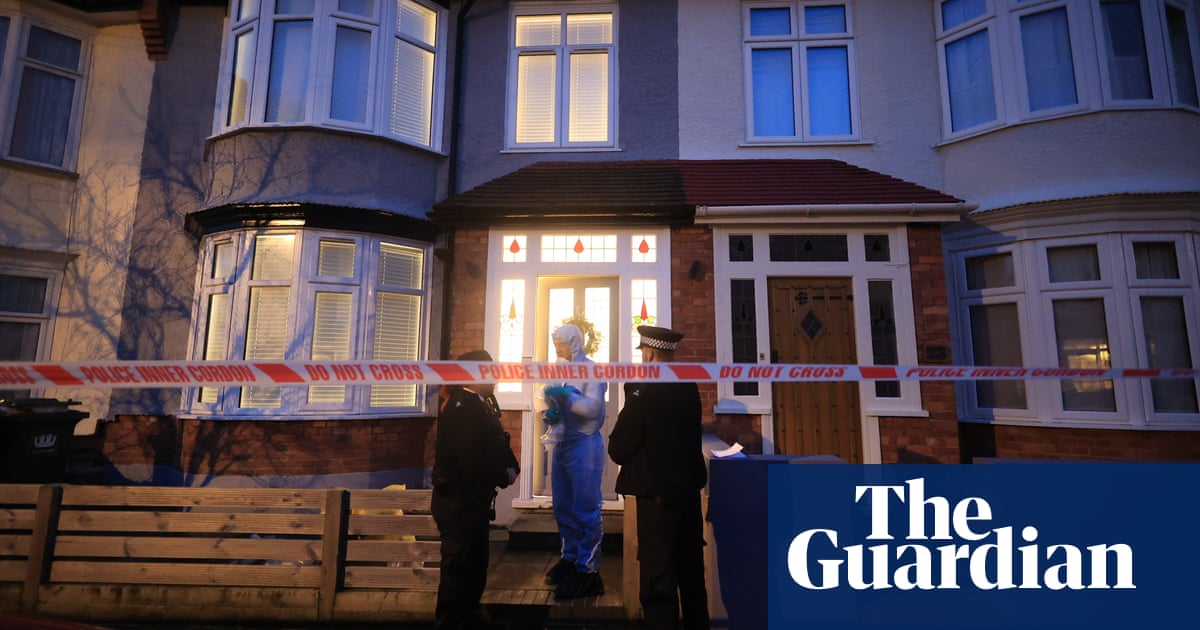
A man found guilty of killing his fiancee and dumping her body in a cesspit in 2016 will die in prison having being sentenced to a whole-life order for murdering his first wife six years earlier.
Ian Stewart, 61, killed Diane Stewart in 2010 and told family, friends and medical professionals that she had died after having an epileptic seizure, Huntingdon crown court heard, but on Wednesday a jury ruled that he was guilty of her murder.
It was only after he was arrested on suspicion of the murder of Helen Bailey in 2016 that an investigation into Diane Stewart’s death was launched, and tests on her brain tissue – which she had donated to medical science – revealed that she may have suffered a lack of oxygen to her brain for up to an hour before her death.
The judge, Mr Justice Simon Bryan, said Stewart would serve a whole-life order without any possibility of parole or conditional release. “It no doubt never crossed your mind that the donation of Diane’s brain for teaching and research would lead to your ultimate downfall, as it was to do,” he said.
The judge added that there were “striking similarities” between the two murders, and that both had involved Stewart telling “a series of calculated and callous lies” and “acting out a charade”.
A whole-life order was the only “just punishment for your callous and chilling murder of two separate woman who had the misfortune to be in an intimate relationship with you”, he added.
The couple’s children, Jamie and Oliver Stewart, paid tribute to their mother in a joint statement released through police.
“Our mum was amazing,” the said. “All the people we have spoken to and things we have heard since her death have only enhanced this feeling.” The pair said they had a “wonderful, caring upbringing”, adding that the past six years had been “really upsetting”.
“We now look forward to recalling the many happy moments we had growing up as a family,” they said.
During the three-week trial, a jury heard that Diane’s death in 2010 was recorded as sudden unexplained death in epilepsy (SUDEP), after Stewart said he had found his wife collapsed at their home in Bassingbourn, Cambridgeshire, in 2010.
In 2017, Stewart was found guilty of killing Bailey, the author of the Electra Brown series, a year earlier. He drugged Bailey with his sleeping medication before hiding her body, along with that of her pet dachshund, Boris, in a 100-year-old cesspit concealed beneath the garage of their £1.3m property in Royston, Hertfordshire.
After the guilty verdict in 2017, police reopened the case, and while the original postmortem had not treated Diane Stewart’s death as suspicious, later examination of brain tissue showed signs that “breathing had been restricted” for between 35 minutes and an hour before her death.
A consultant neurologist estimated the risk of the 47-year-old having had a fatal epileptic seizure to be about one in 100,000; a Home Office pathologist said he would have expected to see injuries on the outside of a body of someone who had fallen on concrete during a fit, but no such injuries were found on the body.
The court heard Stewart had delayed several times before ringing 999 on 25 June 2010, and said he had performed CPR before attempting to get help from a doctor and a nurse who lived opposite. He said he had tried CPR again, before finally ringing the emergency services.
A paramedic who attended the scene said Stewart “appeared dissociative and was simply answering questions calmly”, and there were no signs of the bodily trauma that normally accompanied the administering of effective CPR.
At his wife’s funeral, Stewart “seemed totally unbothered and seemed quite aloof”, said her friend Alexandra Bailey, while her sister Wendy Bellamy-Lee said he was “very calm”.
Det Supt Jerome Kent, who led the investigations into both women, called Stewart a “master manipulator”.
“He had the ability to convince agencies of his innocence and kept the truth of what happened from family and friends, keeping those lies going over months and years as well as through the court process,” he said.
He added: “There is no typical victim of domestic abuse. The fact is, it can happen to anyone”
After Diane’s death, Stewart inherited £96,000, which he said was for their sons’ future. He bought a red two-seater MG, but insisted the purchase was in her memory.
The prosecution QC, Stuart Trimmer – the same barrister who prosecuted Stewart’s first trial – suggested Stewart did not do the probate paperwork for a further £50,000 he could have claimed because by the end of the year of her death he had already met Helen Bailey in an online bereavement group.
Diane Stewart’s siblings, sister Wendy Bellamy-Lee and brother Christopher Lem, called her “a very special, caring and capable person” who would “always be greatly loved and hugely missed by her family and all who knew her”.












